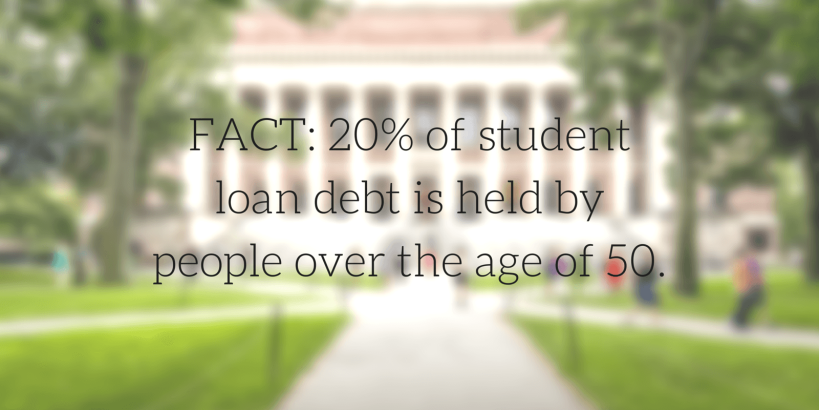When you think about student loan problems, you’re probably thinking about someone in their 20s or 30s. But someone closer to Social Security? Not likely.
At least, that’s what I used to think. But over the past few years I’ve been seeing more people approaching retirement buckling under the weight of student loan problems.
I used to think this was the exception rather than the norm. Sadly, I’ve been proven wrong.
This unscientific research was confirmed by a June 2012 report put out by Barclays. The report says 15.5% of outstanding student loan balances are held by borrowers age 50 to 59, and an additional 4.2% is held by people 60 and older.
OK, you say. But those above the age of 50 are probably financially stable enough to be paying their student loans. Not so.
According to the Barclays report, borrowers older than 50 are responsible for 16.9% of the past-due balance and those older than 60 account for 4.8%.
These folks aren’t likely to see their income rise significantly over the rest of their employment future, and most are looking at reduced earnings due to retirement.
Elderly Borrowers And Student Loan Garnishment
Remember that federal student loans can administratively garnish your income, including Social Security benefits.
There are limits to what the government can take, but those living on a fixed-income know it’s tough enough as is to get by.
What’s The Solution For Elderly Borrowers?
Thankfully, there are some ways for elderly borrowers to keep student loan debt from crushing their dreams of a peaceful retirement.
There are income-based and income-contingent repayment plans, as well as disability-related student loan discharges for those who quality.
For younger relatives, there’s some relief in knowing that a borrower’s death will also discharge the obligation to repay federal student loans.
As Always, Knowledge Is Power
If you’re an elderly student loan borrower or know someone who is, you owe it to yourself to get informed about your options.
Call your student loan servicer as well as the U.S. Department of Education to learn how you can handle your student loan debt more effectively.
If all else fails, get in touch with someone like me who understands the process and your choices.
H/T: Chicago Tribune
